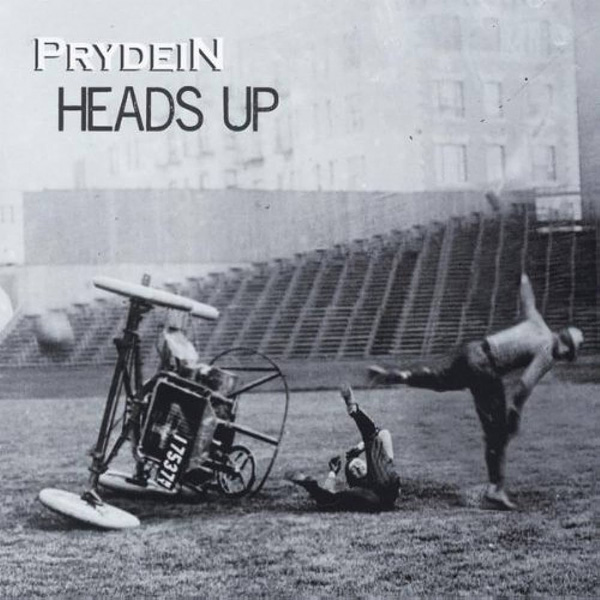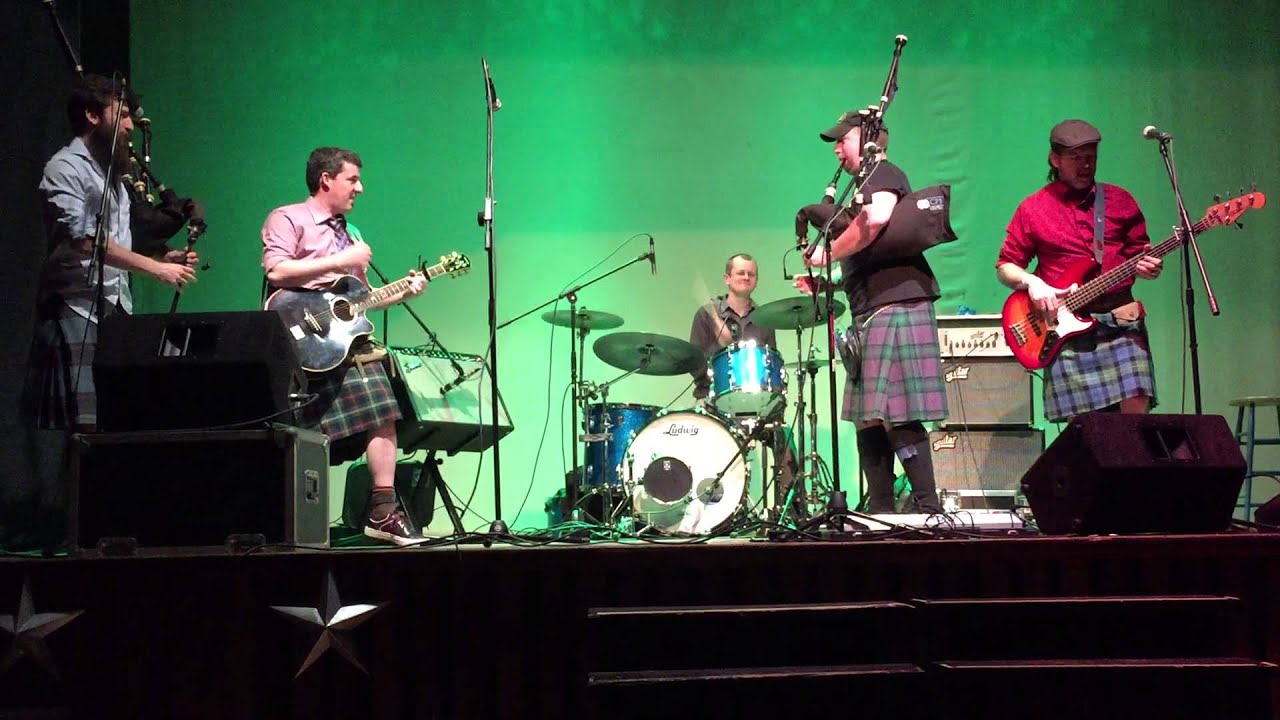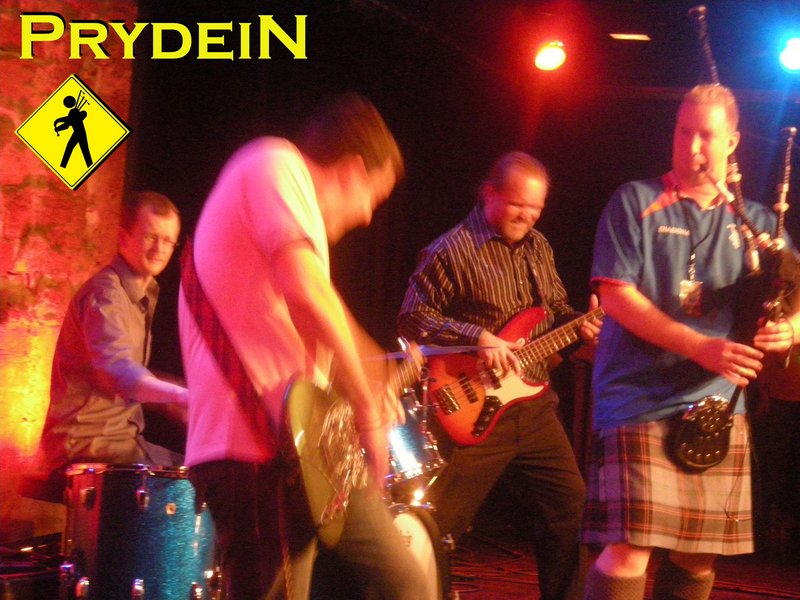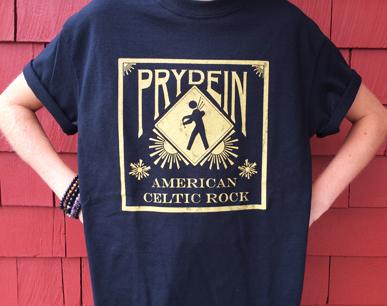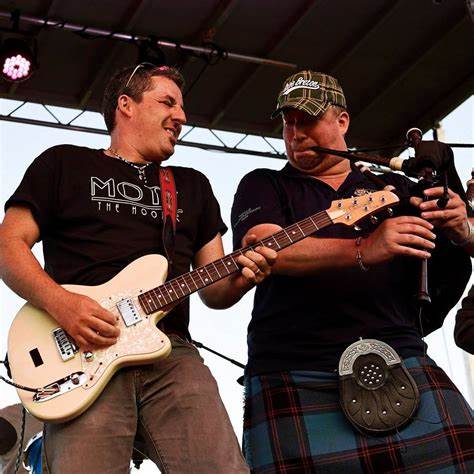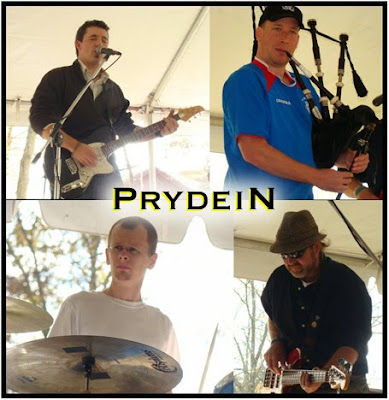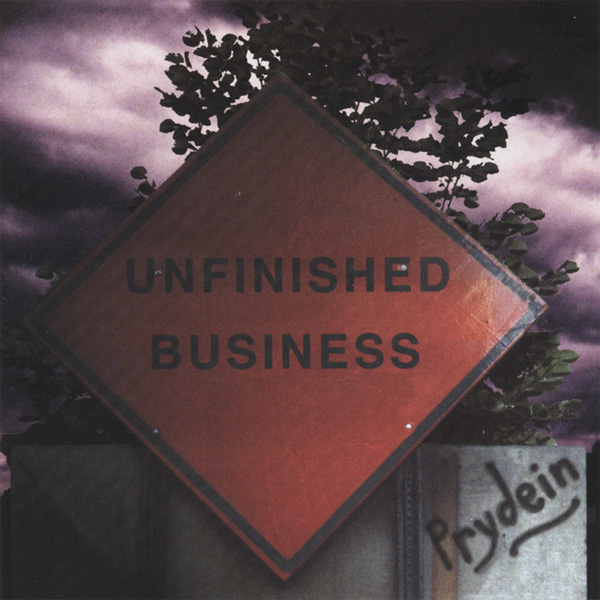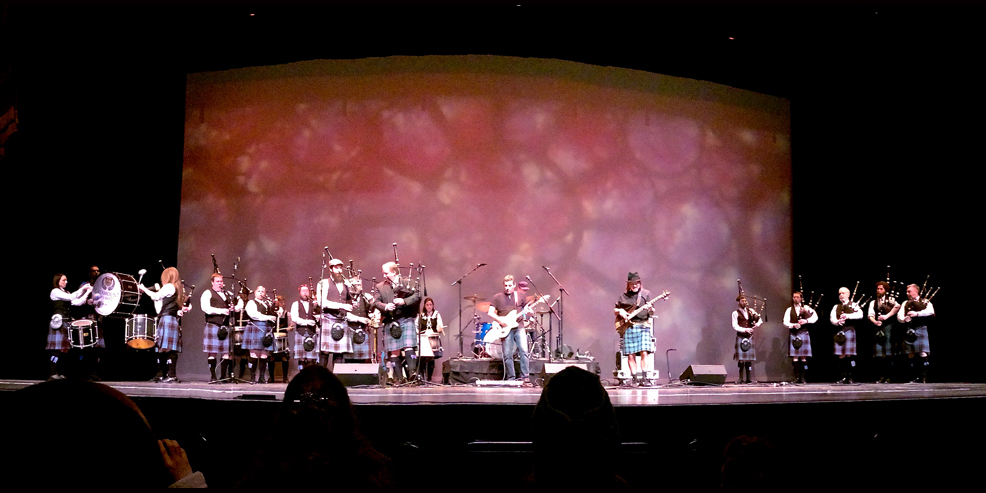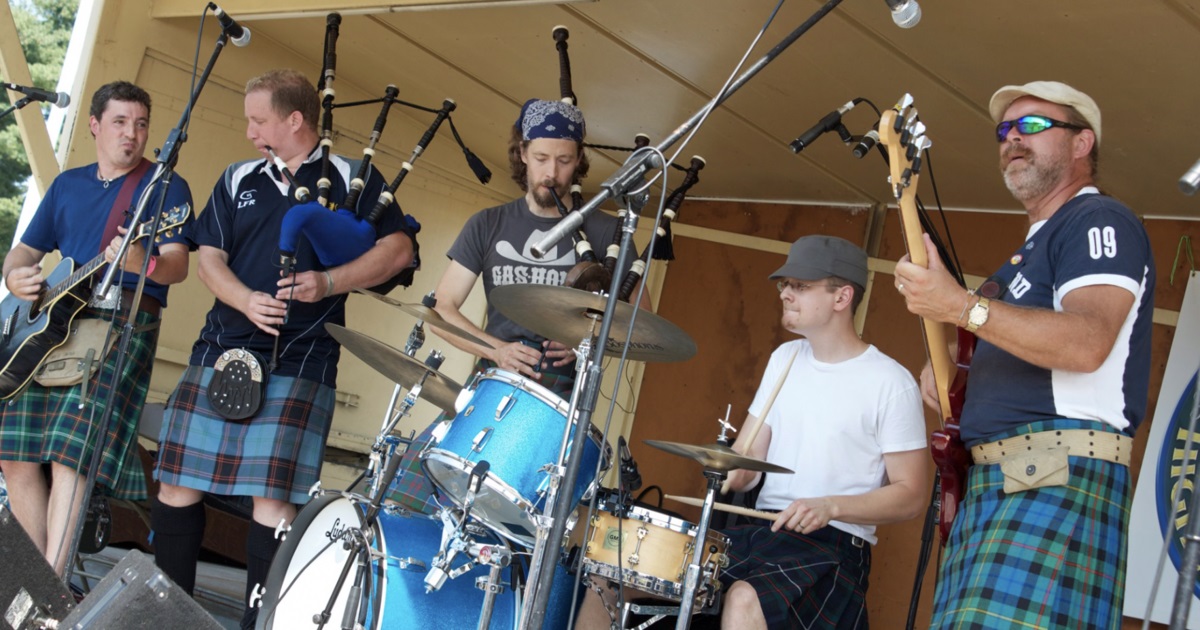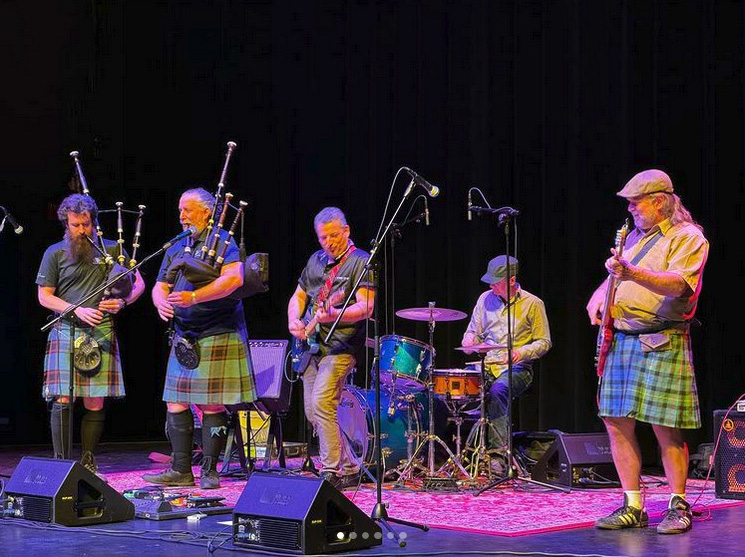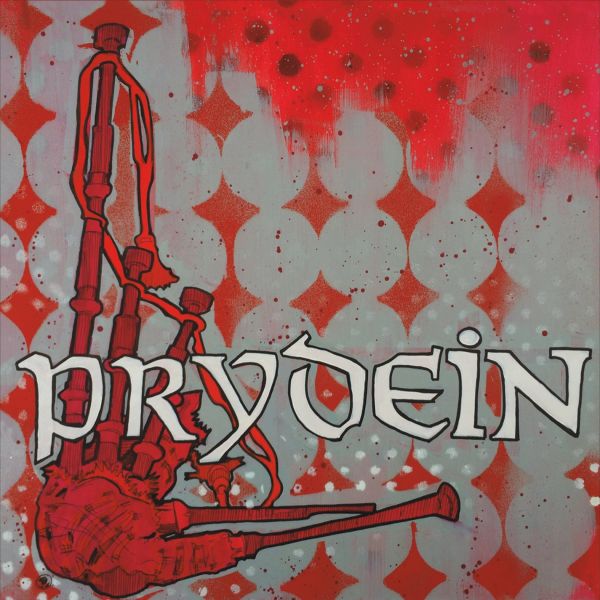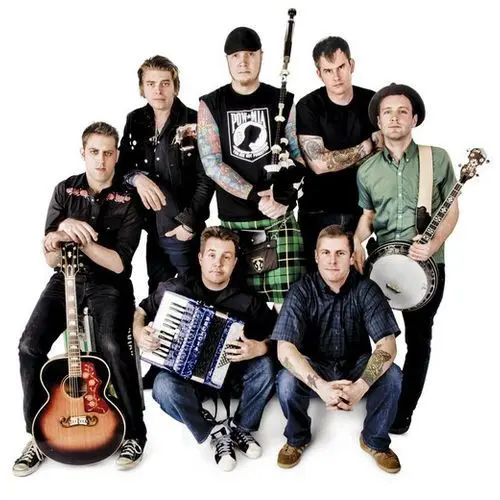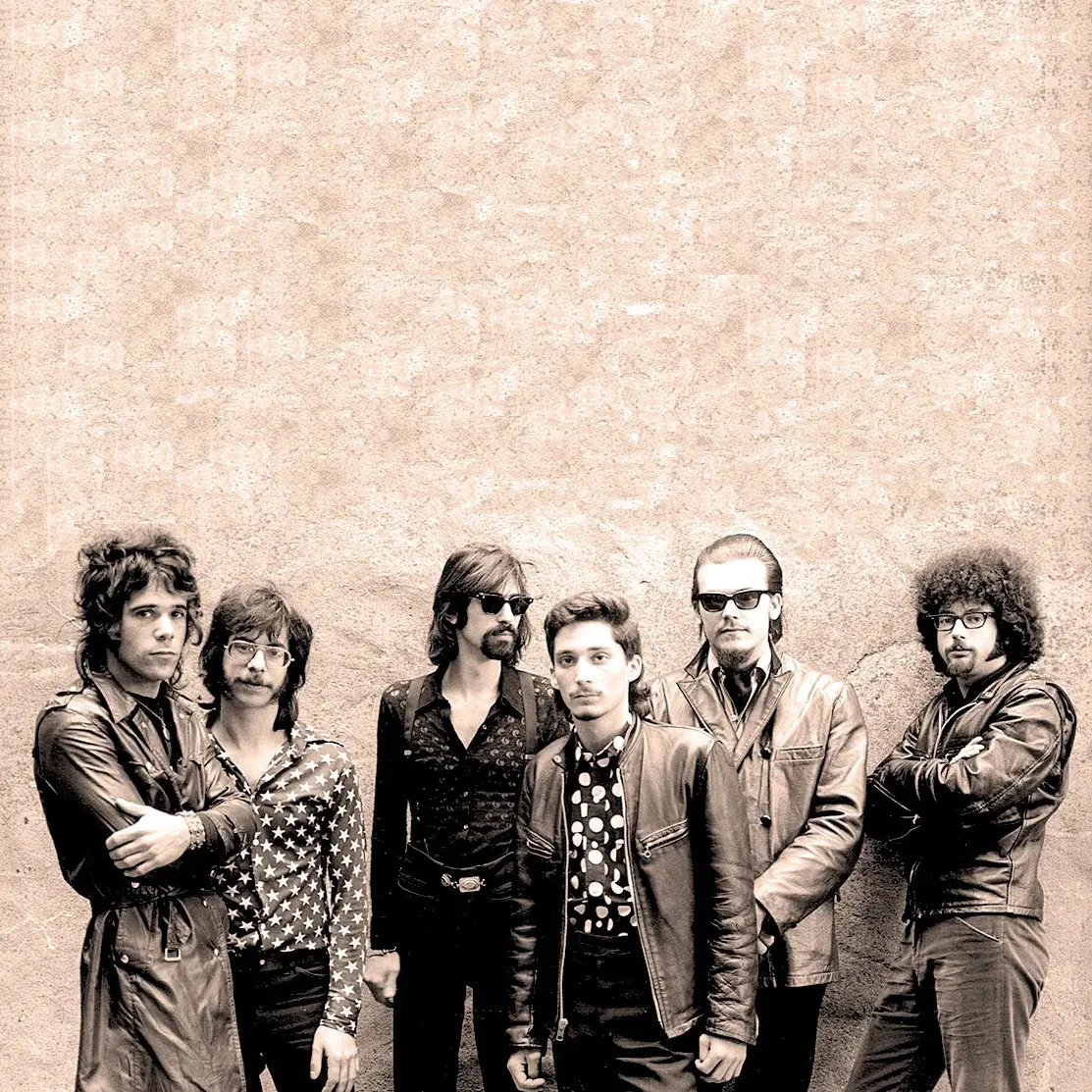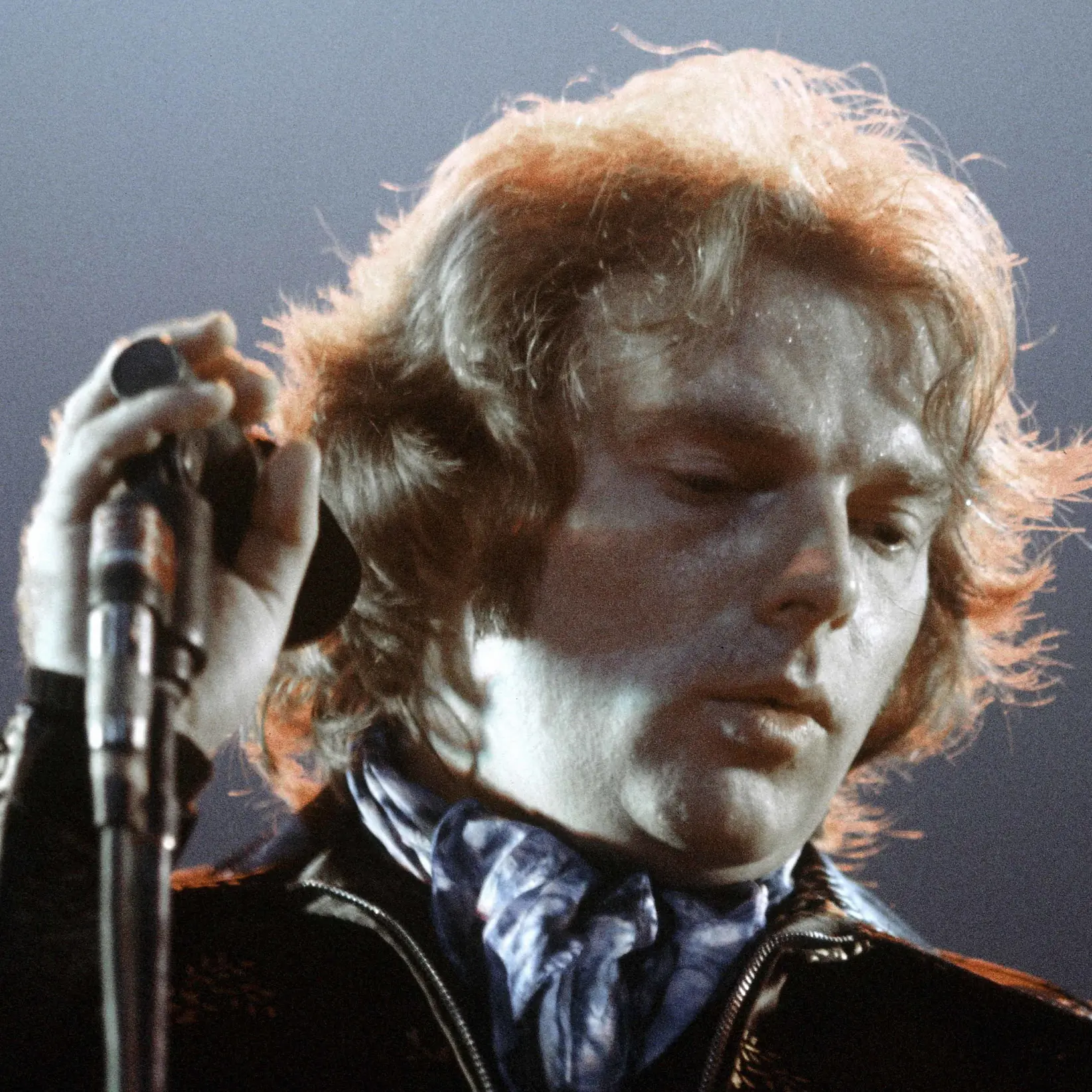Prydein
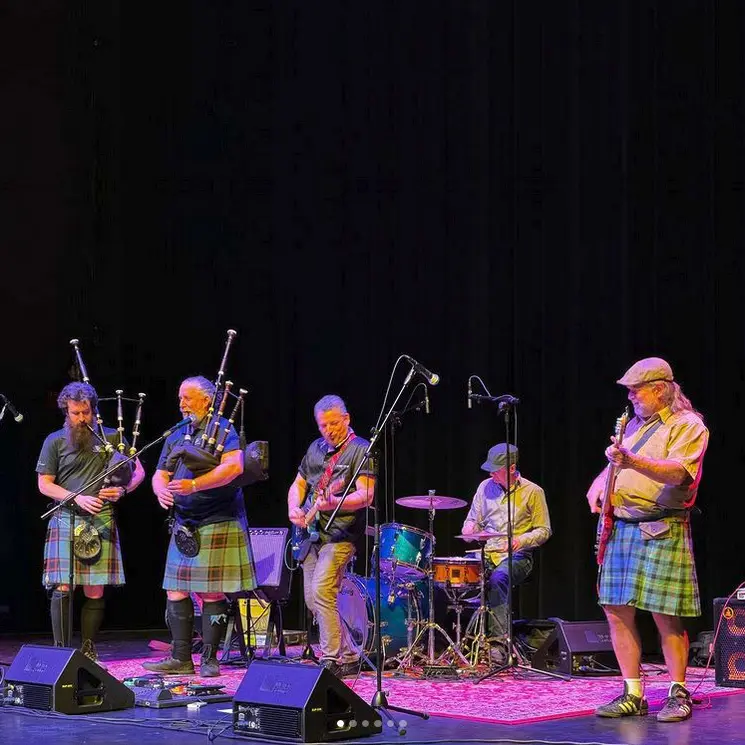
Ask most people to name a rock band with a bagpiper and they’ll give you face like a dog that’s been shown a card trick. Ask anyone slightly familiar with Celtic rock and they’ll say “Dropkick Murphys“ faster than you can down a shot of Jameson. But ask folks more liquored up in the genre – particularly those from New England and especially those from Vermont – and they’ll give you a name that most rockers don’t even know how to pronounce: Prydein.
Call their genre-blending, bagpipe-blaring style what you like – Celtic rock, Scottish rock, kilt rock, bagpipe rock or even Sham rock – but “rock” is the operative word. And with song titles like “Stairway to Scotland” – a Prydein original, not a tartaned-up cover of the song you just thought of – they wave their rock roots as proudly as they’d wave a Scottish flag.
Overview
A piped-out, kilted-out, blow-your-face-out brew of Motörhead, AC/DC, ska, funk and rockabilly stirred with wild abandon into a rich Celtic stew, Prydein bridges the generation gap with their inimitable mix of rocked-up traditionals and head-banging originals. The band has recorded five studio albums and one live LP, performed across New England and the greater US for almost 25 years and has become a mainstay at the annual Highland Games events in New Hampshire and other states. “While this may not be your great-grandfather’s Celtic band,” writes Jo Sarnelli on the music site Discogs, “Prydein is your Celtic rock band.”
Formation, Influences
The group was formed in 1999 in Burlington, Vermont, by guitarist-mandolinist-harmonicist Aron Garceau, who says he weaned himself on Led Zeppelin and Stevie Ray Vaughan, and bagpiper-flutist Iain MacHarg, who grew up listening to traditional Scottish music as played by The Battlefield Band and The Tannahill Weavers.
The seeds of what became Prydein were planted in 1996 in the first band the pair put together, Whiskey Before Breakfast, which they formed at the University of Vermont when three of its five members were enrolled in UVM’s experimental music program.
Hell’s Brook, Time Well Spent, Disbanding
In late 1996, Whiskey Before Breakfast recorded Hell’s Brook, issued in April 1997 on the Homegrown Concoctions label. Before the album dropped, however, the band’s fiddler left, leaving the remaining four members having to decide whether to replace him to maintain the same sound or try something new. They chose the latter and became a Celtic-rock quartet – a bare-knuckled, fist-to-the-teeth sort of one – and adopted kilts as their onstage attire.
In 1998, the group recorded Time Well Spent, technically their second album but their first as a Celtic-rock outfit, also on Homegrown Concoctions. They appeared at festivals around the northeast through the summer, but after September shows at the New World Festival in Randolph, Vermont, and the Celtic Classic festival in Bethlehem, Pennsylvania, the band broke up with no intention of reforming.
Reunion, Becoming “Prydein”
Just a year later, however, Garceau and MacHarg decided they hadn’t had enough of the haggis-neeps-and-tatties-eating musical monster they’d unleashed. Teaming with drummer-keyboardist Peter Kelly and bassist Aaron Flynn (soon replaced by Jeff Margolis), they began rehearsals with the aim of recording an album by the end of 1999.
And that required a new band name. Initially wanting one that reflected the group’s hybrid sound, they considered combining Led Zeppelin and Tannehill Weavers into “The Led Weavers” or “The Tannehill Zeppelins” but ultimately decided on Prydein (pronounced “pry-den”), a modification of the medieval Welsh word for the island of Britain, Prydian.
Unfinished Business, Hiatus
In late 1999, the newly named outfit recorded their debut album, the aptly titled Unfinished Business, on the Vermont-based Kynsfolk label, with Garceau on guitar, lead vocals and harmonica, MacHarg on Scottish smallpipes, flute, tin whistle and backing vocals, bassist Margolis, drummer Kelly and studio musicians on trumpet, saxophone, trombone and percussion.
Kynsfolk released the LP in early 2000 and the group spent much of the year touring the eastern seaboard and playing festivals as far south as Florida and as far west as Detroit, but by early 2001 Garceau and MacHarg had become, in a nutshell, tired of each other and their increasingly petty arguments. Deciding to take a break of undetermined length – but not to break up the band – Garceau joined the sextet Jazzmosis while McHarg formed Iain’s Catamount Pipe Band and taught bagpipe and flute.
Reformation
About six months later, in the summer of 2001, Prydein’s break came to an end when organizers of the New World Festival contacted MacHarg to invite Prydein to play at the upcoming event in September. He and Garceau were happy to accept but faced a major personnel issue: After the months-long hiatus, Margolis and Kelly had no interest in returning.
The problem was solved in time for the festival, with Garceau recruiting Jazzmosis bassist Andy Smith, MacHarg recruiting drummer Andrew Adams and the group becoming a quintet with the addition of 16-year old Hazen Metro, one of MacHarg’s students and a member of his Catamount Pipe Band, on highland bagpipes
Between 2001 and 2005, the group stayed out of the studio while playing festivals and gigging at small venues around Vermont and greater New England. In 2006, Adams left the band, replaced by Jazzmosis drummer Caleb Bronz, and another of MacHarg’s bagpipe students and member of his band joined, 16-year old Willa Davie, making the group a sextet. The expanded lineup’s first appearance was in June at the Concord Market Festival in New Hampshire and in September they performed at the New Hampshire Highland Games held at Loon Mountain Resort.
Loud Pipes (Save Lives)
In 2007, the band became a quartet again following Metro’s and Davie’s graduation from high school and departure for college and the band recorded its second LP for Kynsfolk, Loud Pipes (Save Lives), featuring its piping-hot closing track “Stairway to Scotland,” now the band’s standard closer at live shows. The song is not their rendition of Led Zeppelin’s “Stairway to Heaven” but rather their renditions of the two songs bagpipers are most often requested to play, performed as a single song with no break in between.
And there’s a clever, perfectly logical reason why the band put the tune together, as Garceau explained in 2009 to The Sound Faction. “Basically, it’s the two tunes that get requested immediately upon learning that the person you are speaking to is a bagpiper, ‘Amazing Grace’ and ‘Scotland the Brave,’” he said. “Forever the band wouldn’t do those tunes out of over play and pride. After being asked enough times, though, we decided that if we were going to play them then we were going to play them on our terms. What we created is our own ‘Margaritaville’ – the song that we can’t get away without playing.”
Heads Up, Live at the Fort, About Time
In 2010, Kynsfolk released their third album, Heads Up, which includes their pipe-heavy rendition of “Centerfold,” The J. Geils Band’s #1 Billboard Hot 100 hit from 1981. Also that year, Garceau and MacHarg expanded the band’s roster and sound with the addition of Dan Houghton on bagpipes, flute and bouzuki (part of the long-necked lute family with steel strings and a sharp metallic sound, like a low-pitched mandolin).
In 2012, Kynsfolk issued Prydein’s Live at the Fort, recorded in October 2011 at Fort Ethan Allen in Colchester, Vermont. The LP includes their rendition of “Flower of Scotland,” known as the country’s unofficial national anthem, and the iconic Irish standard “Star of the County Down,” which has been recorded by dozens of others including Van Morrison on his 1988 album with The Chieftains, Irish Heartbeat.
On St. Patrick’s Day 2017, Kynsfolk released Prydein’s most recent and arguably most adventurous LP, About Time, a 14-track collection featuring originals and a wildly diverse range of covers including Jethro Tull’s “Wind Up,” Massachusetts-born comedian Denis Leary’s “Traditional Irish Song” and “Stuck in the Middle with You,” the 1973 smash by Scottish band Stealer’s Wheel that hit #6 in the US and #8 in the UK. Moving across the sonic spectrum from jigs and reels to funk and pop – each track wrapped up in a distortion-heavy blanket of bone-crushing rock – the album has received broad critical acclaim.
Festival Appearances
Over the past decade, Prydein has appeared regularly at festivals all across New England, including the New World Festival and the Music by the River outdoor concert series in Vermont, and since 2017 they’ve been an annual presence at The Big E in West Springfield, Massachusetts, the biggest fair on the US east coast. At such events, they’ve opened for Red Hot Chili Peppers and appeared on bills with both old-school traditional and new-school amped-up Celtic acts including Enter the Haggis, Young Dubliners, Seven Nations, Albannach and The Tannahill Weavers.
Bagpipers Welcome in Encores
In addition to their thoroughly untraditional take on thoroughly traditional songs, Prydein ends its shows in a decidedly untraditional way: By inviting bagpipers in the audience on stage to join in on “Stairway to Scotland.” When asked about the unusual – some would say dangerously harebrained – approach in 2009, Garceau said the band enjoys it just as much as the pipers and the fans.
“You’d be surprised at how many pipers are in our audiences,” he said. “And don’t be surprised that they all come up on stage with us. Remember, these are tunes that all pipers know and they’re usually pretty excited to be able to play them in a completely different setting. The audiences really love that, as do we.”
(by D.S. Monahan)

